0

0

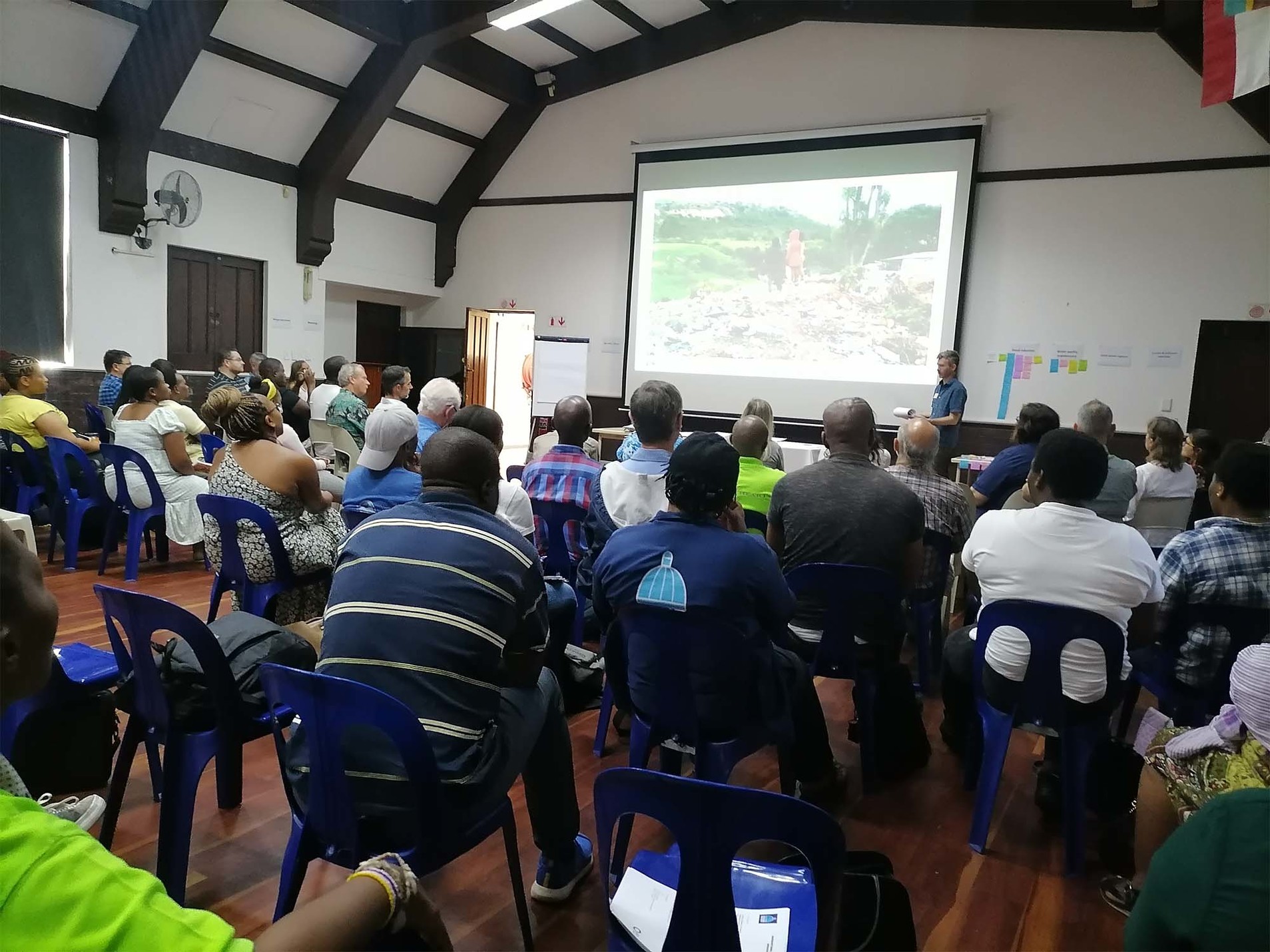


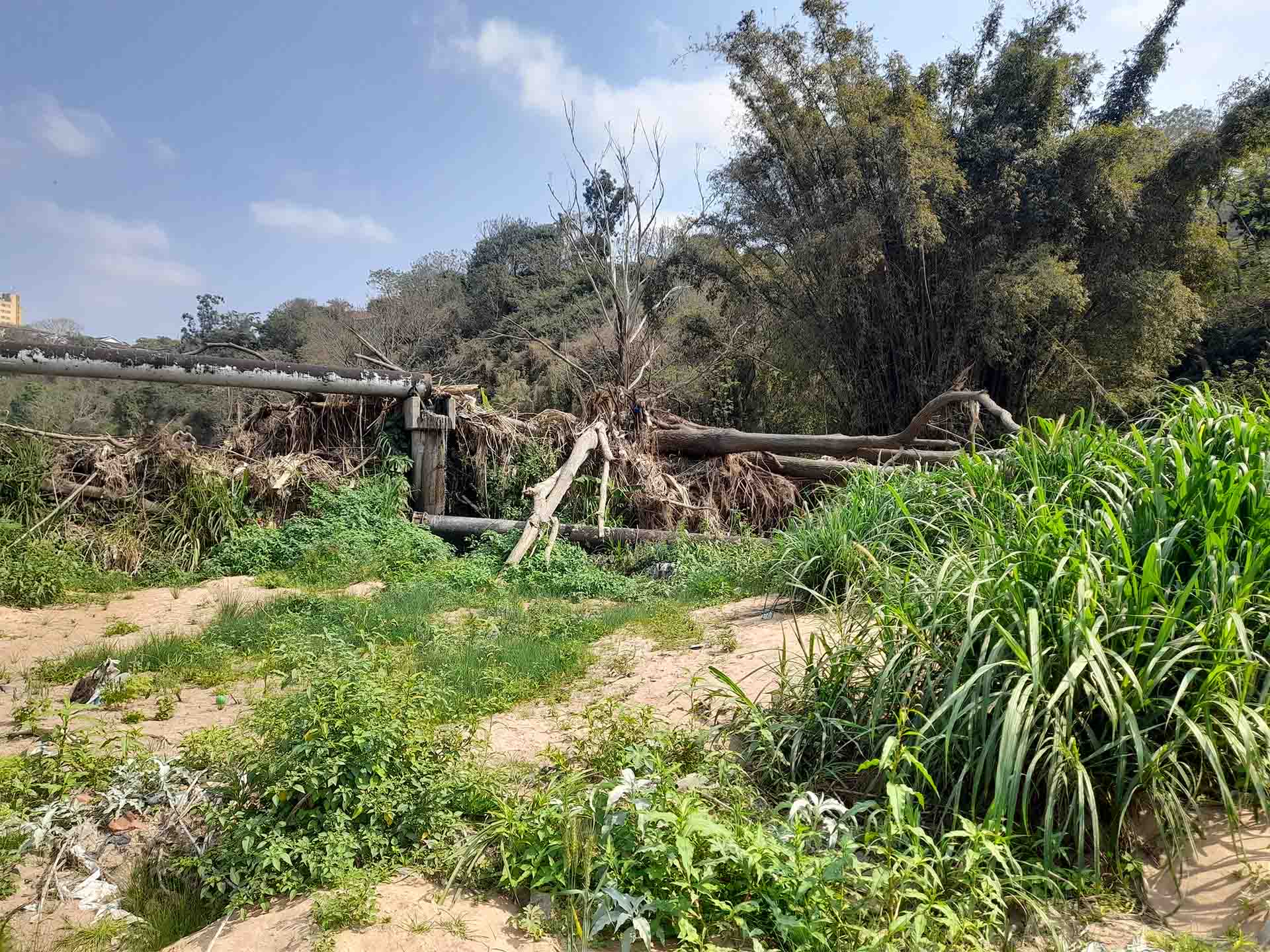
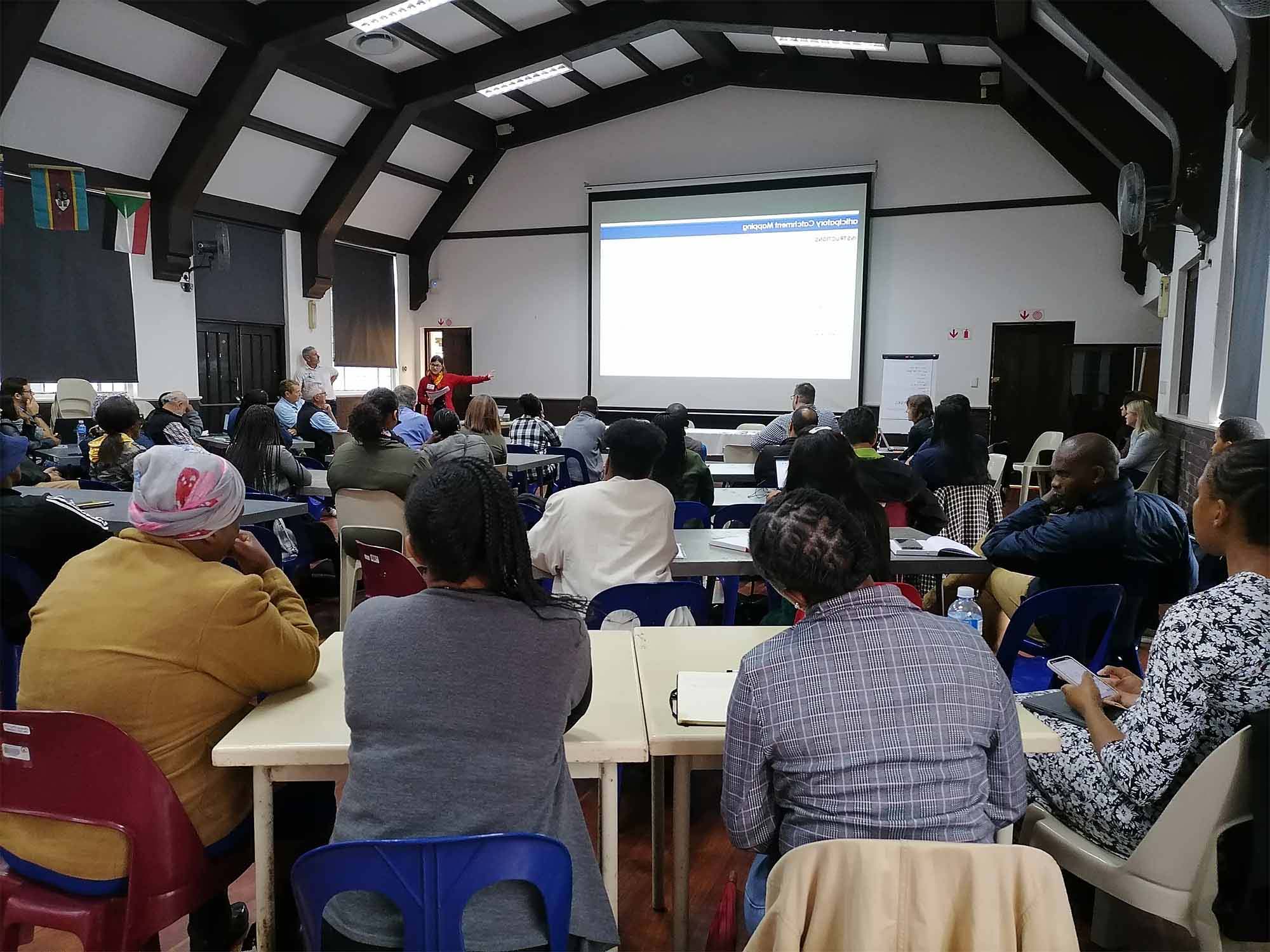
Analyse the context and provide integrated river management plans.
Through several sectorial and technical analyses as well as an extensive participatory process, the pre-feasibility studies consisted of:
Carrying out diagnoses for each catchment (hydrological modelling and climate change, vulnerability assessments, ecosystem services, open space management, and stakeholder).
Developing catchment management frameworks in 4 catchments including:
Producing precinct business management plans in 8 districts : operational design of the proposed interventions (e.g. waste dams on rivers, buffer basins and rehabilitation of flood-prone areas, bank stabilisation, invasive plant control, replanting, etc.) aiming at restoring the environmental and social conditions of the river bed and bordering areas.
Developing pre-feasibility plans for the recommended interventions in two neighbourhoods, detailing possible partnerships involving the civil society and private sector, funding options and mechanisms, and essential next steps for the implementation of these plans.
These catchment management frameworks are coupled with a business-case.
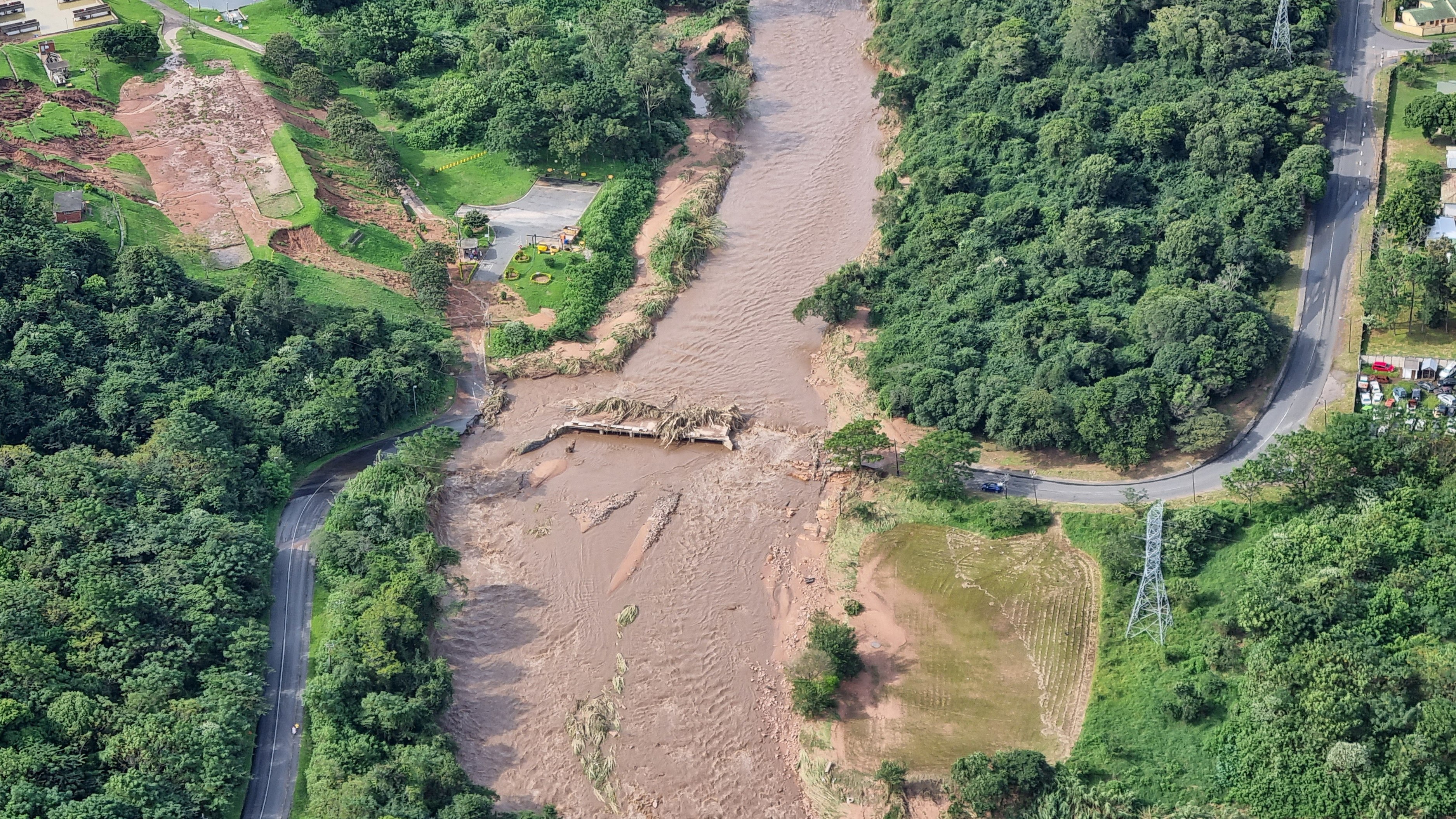

CONCLUSION
AND HIGHLIGHTS
The studies funded by CICLIA directly contributed to moving from a pilot on a single catchment to a structured, strategic and operational program that can be submitted for funding, in particular to international donors. They enabled the geographical prioritisation of the investments and the definition of their content: rehabilitation of water and sanitation networks, sustainable urban planning and improvement of informal settlements, management of waste and invasive plants. The methodology is transferable to other cities with water management issues. The municipality of Msunduzi (Pitermaritzburg) has already shown interest in implementing it in its territory.
The study highlighted a twofold innovation:
It demonstrated the cost-effectiveness of community-based catchment management through risk avoidance (compared to the costs of repairing damages) and
It provided the basis for qualifying rivers as "green infrastructures". This should allow the municipality to allocate a maintenance budget for rivers in the same way as they do for standard grey infrastructure, in order to protect them in the long term.







1. General objectives of the support
The climate change vulnerability assessment showed that:
> an increase in rainfall and river flows during the summer period is to be expected in the medium and long term,
> erosion and urbanisation (soils artificialisation) have a more significant impact on river flows during intense rainfall episodes than current and future climate change effects.
The study identified solutions for restoring river corridors by planting native species along the banks, thus contributing to carbon capture and storage, especially in rehabilitated wetlands.
Following the interventions proposed by the study, action plans should be developed to preserve and support biodiversity in and along rivers. The depolluted areas could become attractive public spaces. This also represents an opportunity for economic development and job creation.
The study took over from a pilot work carried out for the Ohlanga catchment and funded by the C40 Finance Facility (CFF). It was able to support the upscaling including 3 new catchments (uMhlangane, Palmiet and uMhlatuzana).
The study helped develop a river management intervention 'toolkit' (biophysical, social and institutional/political interventions) in urban areas.
Posters displaying the results of the study are available and have been distributed to inform and raise awareness among stakeholders.
The organisation of 4 participatory workshops gave way to the first partnerships for the implementation of management plans at the neighbourhood level.
The municipality is planning to create an internal working group to maintain the momentum and prepare for the implementation of the TRMP project.
> Context (population, km of rivers, roads and sewer pipes, land ownership, management capacities of stakeholders),
> Status and conditions (land use assets, vulnerability of infrastructure, water quality and human health),
> Drivers, pressures and future challenges (evolution of the land use/cover and population, climate change, flood risks, water quality, solid waste),
> Priority interventions proposed to manage challenges.
2. Achievements in terms of adaptation
3. Achievements in terms of attenuation
4. Achievements in terms of biodiversity


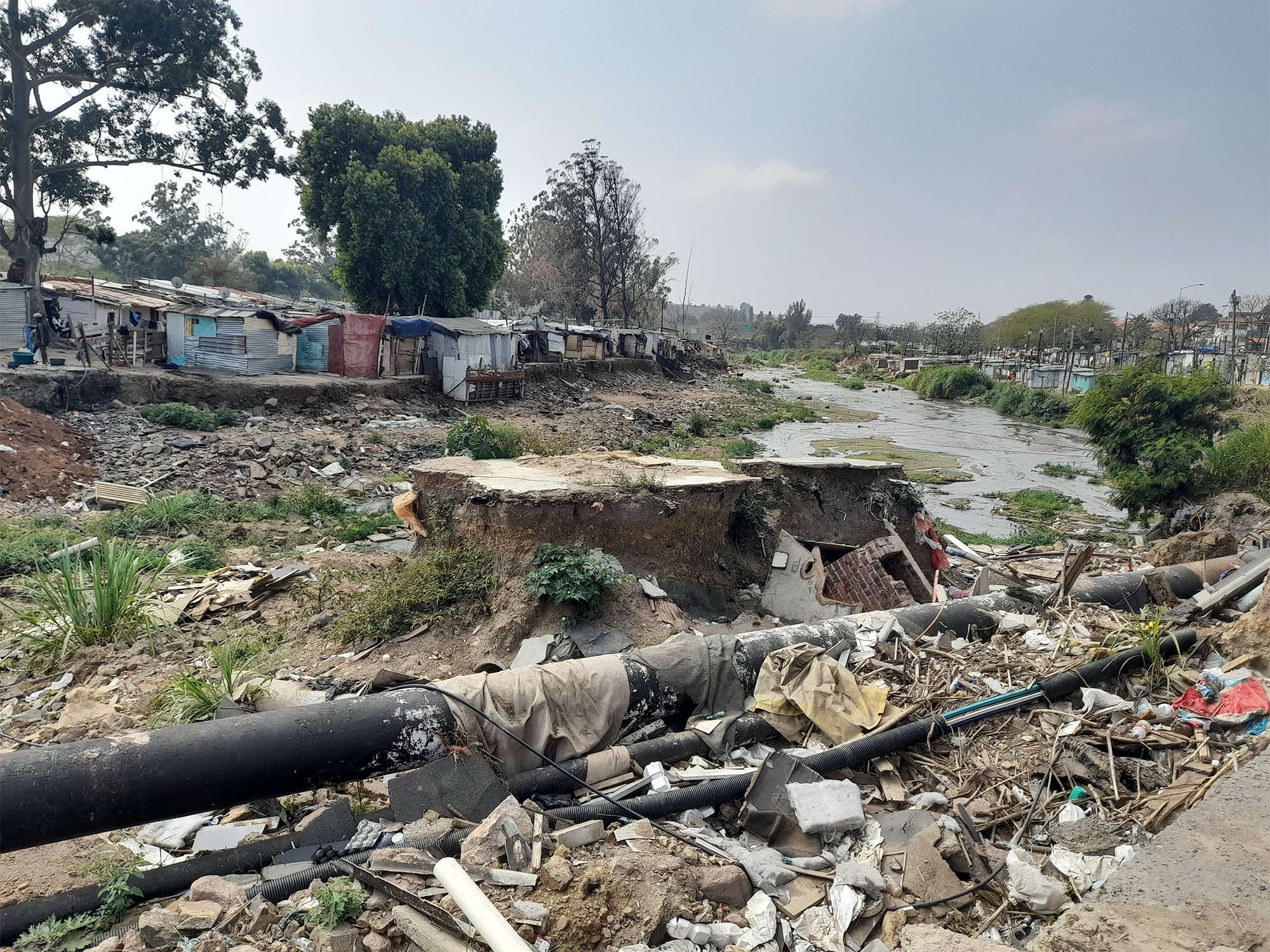
Local authorities are working to design and implement disaster risk reduction programs using innovative approaches, including transformative community-based adaptation and nature-based solutions.
At the heart of eThekwini’s strategy, the Transformative Riverine Management Program (TRMP) aims to improve the territory's resilience to the impacts of climate change by rehabilitating a network of 7,400 km of rivers and streams, which are under heavy human pressure, so that they can optimally function in the context of increased rainfall intensity and frequency.
The eThekwini metropolitan area experienced extreme climatic events in recent years. Heavy rains and coastal storms resulted in severe flooding and landslides, with loss of life and damage to public facilities and infrastructure. Drought episodes also caused losses of agricultural stocks and crops.
These impacts are worsened by the catchments’ very bad condition (invasive plant species, waste, hydrological changes linked to soil artificialisation and the sprawl of precarious districts, etc.).

CONTEXT



The CICLIA studies enabled the scalability of a pilot project on one catchment to a program expanded to the entire metropolitan area. Furthermore, the methodology developed is replicable to other urban areas in South Africa, and more widely on the continent. The studies should lead to the implementation of the first component of the Transformative Riverine Management Program (TRMP). AFD could support the TRMP through a targeted budgetary loan to the municipality.
The CICLIA studies enabled the scalability of a pilot project on one catchment to a program expanded to the entire metropolitan area. Furthermore, the methodology developed is replicable to other urban areas in South Africa, and more widely on the continent. The studies should lead to the implementation of the first component of the Transformative Riverine Management Program (TRMP). AFD could support the TRMP through a targeted budgetary loan to the municipality.
Follow-up
to the technical assistance
€334 000
CICLIA Funds mobilised
Climate change adaptation
Climate approach
Implementation period
2020-2023
(7 months - completed)
Nature
of the technical assistance
Pre-feasibility study for the scalability of a pilot study on a one catchment to a global integrated river management program at metropolitan level
eThekwini Metropolitan Municipality (Durban), South Africa
Project owner
DURBAN
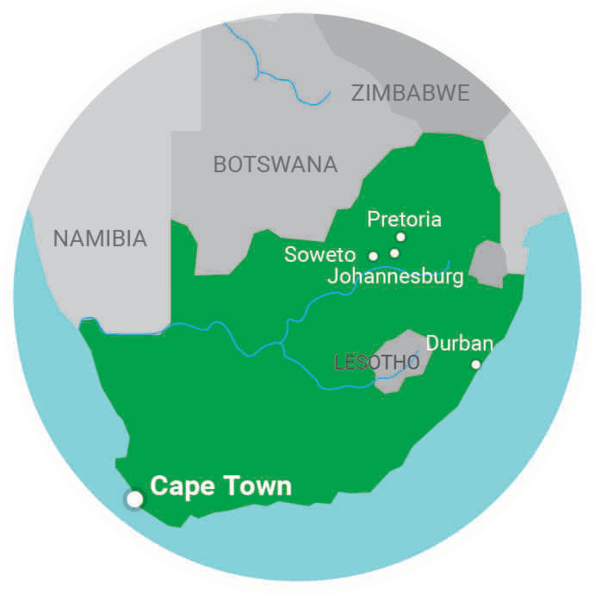
Funding and expertise for a sustainable development of African cities






.
.